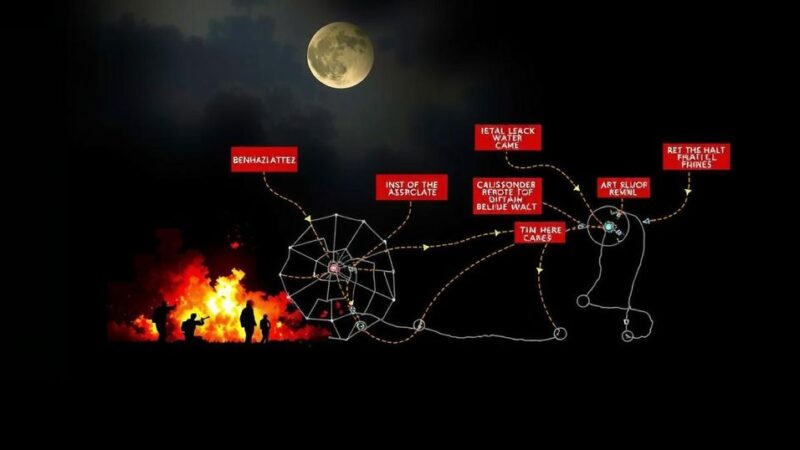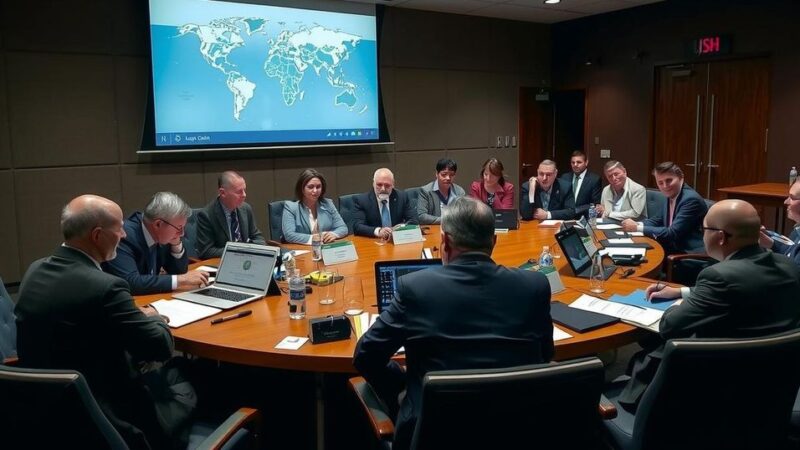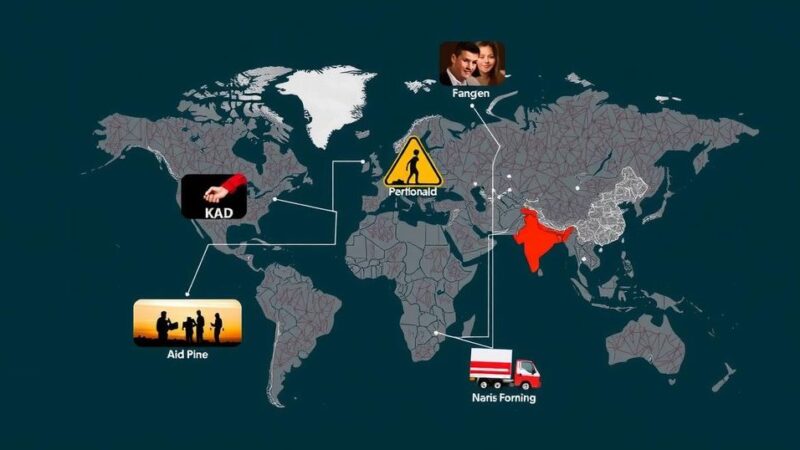With only five weeks until the 2024 presidential election, crises involving violence in the Middle East, a dockworkers’ strike, and Hurricane Helene threaten to impact voter decision-making. Political analysts warn that these developments might favor Donald Trump over Kamala Harris due to typical voter tendencies to blame the incumbent for negative events. As both candidates engage in debates and campaign strategies, the intricate relationship between these crises and electoral outcomes is under close scrutiny, particularly regarding economic implications stemming from the dockworkers’ strike.
As the 2024 presidential election approaches, a trifecta of crises is poised to significantly influence voter sentiment. The turmoil in the Middle East, a major labor strike affecting dockworkers on the East and Gulf Coasts, and the catastrophic impact of Hurricane Helene represent unprecedented challenges for candidates Donald Trump and Kamala Harris in the critical final weeks of their campaigns. Hurricane Helene’s recent devastation left a staggering death toll of 180 and many others missing across the Southeast, including crucial swing states affected by substantial rainfall. Following this natural disaster, more than 45,000 dockworkers initiated a strike that is disrupting the economy and the supply chain. Concurrently, escalating violence in the Middle East, highlighted by missile strikes from Iran against Israel in retaliation for recent Israeli military actions, has further compounded the situation. Political analysts suggest that voters typically attribute the blame for such crises to the incumbent party, thus heightening the risk for Vice President Harris, who represents the Democratic party, while former President Trump may benefit. However, this electoral context is anything but conventional, as Trump has faced his own challenges, including an assassination attempt and the previous withdrawal of President Biden from the race, which complicates voter perceptions. As experts predict, the convergence of these crises is likely to reshape electoral outcomes, as voters increasingly analyze political messaging through the lens of current events. The ongoing vice-presidential debate exemplifies how candidates are already leveraging these topics to define themselves and their opponents, with each striving to craft contrasting narratives. One significant concern, as highlighted by pollster David Jones, is the economic implications of the dockworker strike. This strike is deemed crucial, as economic dissatisfaction typically sways voter opinion against the incumbent party. While turbulent international relations and natural disasters usually garner attention, it is the potential long-term economic impact that could resonate most with American voters. Ultimately, the few undecided voters in pivotal states remain the key to victory. Previous elections have shown that small shifts in voter sentiment can have monumental consequences. As the crises evolve, both candidates will be tasked with effectively communicating their stances and providing assurance to communities directly affected by these events.
The article outlines the current political landscape just five weeks before the 2024 U.S. presidential election, detailing how three simultaneous crises—the escalating violence in the Middle East, a significant labor strike among dockworkers, and Hurricane Helene—are creating a challenging environment for the two leading candidates, Donald Trump and Kamala Harris. Each of these situations not only highlights the candidates’ political strategies but also reflects the increasing complications that arise in responding to external events amidst an already tumultuous electoral atmosphere.
In conclusion, the convergence of a Middle Eastern conflict, a significant labor strike, and the fallout from Hurricane Helene creates a complex political scenario as the 2024 election approaches. The candidates must navigate these crises and their implications for voter sentiment in this already polarized environment. Incumbent party dynamics, economic ramifications, and effective messaging will play pivotal roles in influencing the final decision of voters across critical swing states.
Original Source: www.businessinsider.com






